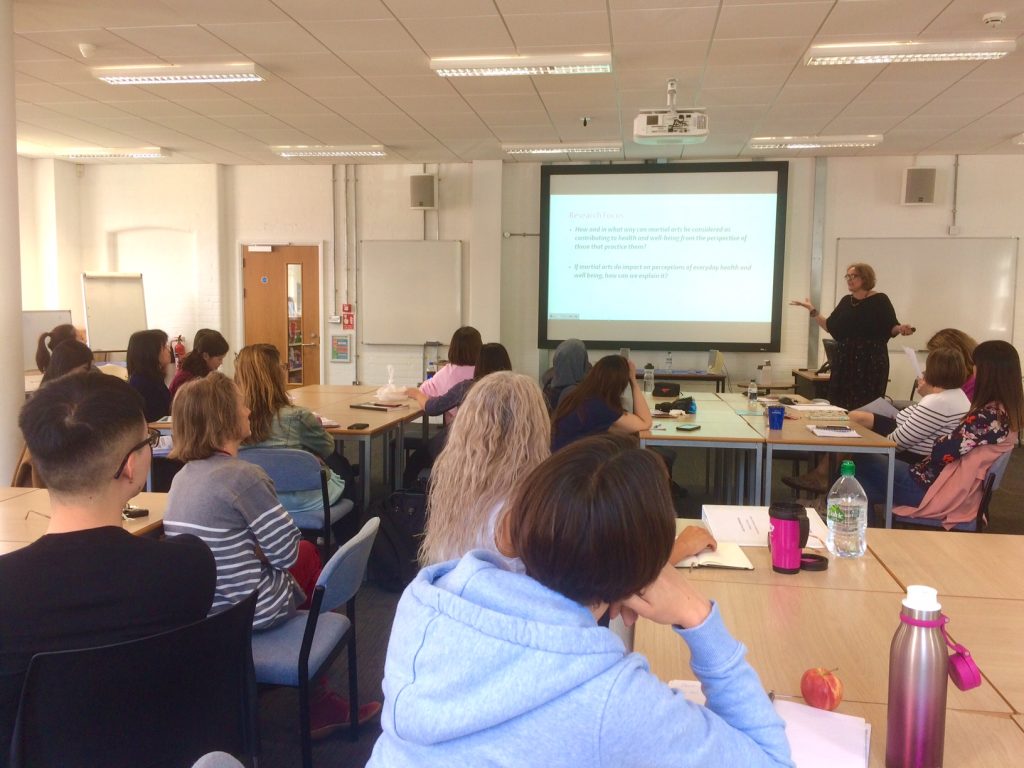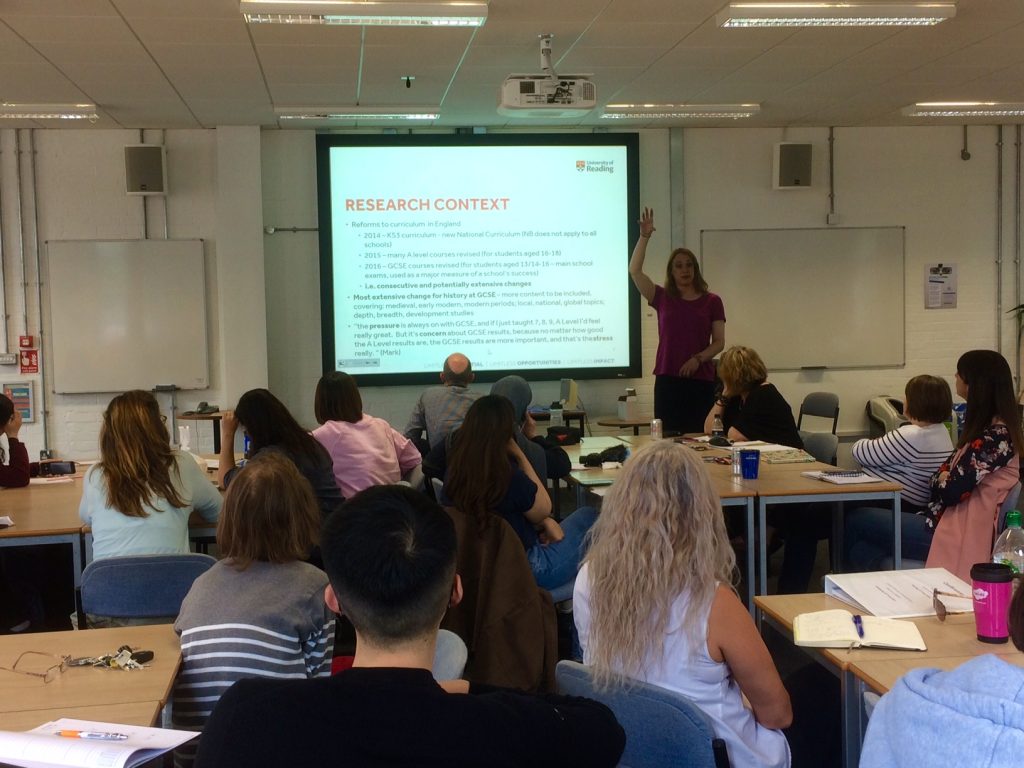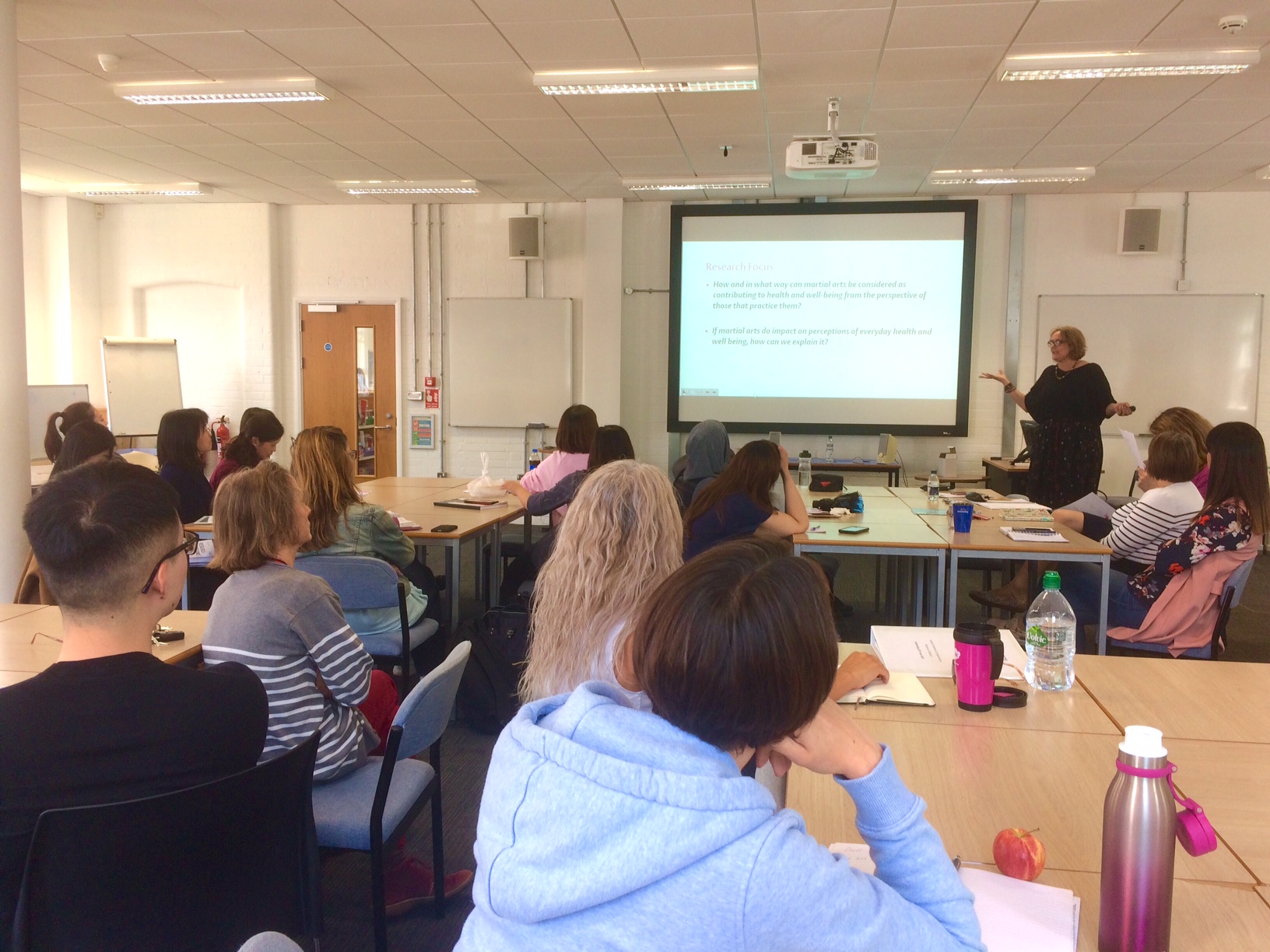The University of Reading’s Institute of Education has a vibrant and inclusive research community and we regularly invite members of our community (both staff and doctoral students) to share their research as part of our lunchtime research seminar series. On Thursday 16 May 2019, we were pleased to hear research updates from two of our staff members: Prof. Carol Fuller (Professor of Sociology of Education) and Dr. Rebecca Harris (Associate Professor of History Education).

In her presentation, titled ‘Martial arts and well-being: Understanding practice and its role in the construction of beliefs’, Prof. Fuller talked about her research which primarily sets out to address how and in what way can martial arts be considered as contributing to health and well-being from the perspective of those that practice them. Using survey data from 515 survey participants from within the UK and abroad as well as interview data from a sub-sample of 40 participants via phone, Skype, Facetime and e-mail, Dr. Fuller found that participating in martial arts has had a profound influence on lifestyle and health from the perspective of those that practice them. Prof. Fuller argued that “Regardless of whether perceived improvements are ‘true’ in a medical sense, beliefs shape practice, which creates outcomes that then reinforce beliefs.”

In her presentation, titled ‘Teachers’ curriculum decision making in an accountability culture: A view from the world of History teachers’, Dr. Harris shared findings from her collaborative research project which focuses on teachers’ decision making in relation to purpose of teaching History, choice of exam board, curriculum choices, pedagogy, and assessment. Using interview data collected from nine History teachers in England. Dr. Harris found that teachers largely adopt ‘low risk’ approaches in the face of high stakes changes. She argued “Accountability measures, against which teachers are judged, act as a constraint on the risks teachers are willing to take”.
This seminar event was very well attended by both research staff and doctoral students at the Institute. Details of the Institute’s future lunchtime research seminars can be found here.

